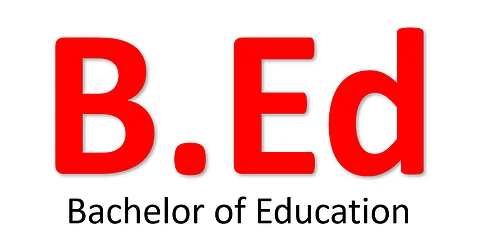
- Home
- Live Blog
- Breaking News
- Top Headlines
- Cities
- NE News
- Sentinel Media
- Sports
- Education
- Jobs

Dr. Mohini Mohan Borah
(Head of the Department of Zoology, Chaiduar College, Gohpur, Assam.
He can be reached at mmbethnozoology@rediffmail.com)
The National Testing Agency (NTA) released the results of the entrance exam for the Integrated Teacher Education Programme (ITEP) on August 9, 2024. This announcement marked a momentous occasion for students across India, particularly those from Assam, as it waved the beginning of their academic journey in ITEP programmes at some of the country’s leading higher education institutions. The ITEP offers students a unique opportunity to receive a high-quality education, laying a robust foundation for their future teaching careers. The announcement has sparked excitement and optimism among students and their families, as they prepare to embark on this new and promising chapter in their lives.
In today’s rapidly evolving educational landscape, traditional teaching methods are being reviewed to meet the diverse learning needs of students. The New Education Policy (NEP) has already begun to reshape education in India, granting students greater flexibility and autonomy in their learning journeys. The integration of online and traditional teaching methods, alongside an emphasis on digital skills, has created a more engaging and immersive educational experience. Technological advancements, such as virtual reality, are further transforming learning, making it more interactive and effective.
A significant shift in higher education under the NEP is the increased collaboration between educational institutions and industries. This partnership approach is designed to equip students with real-world experience, enhancing their employability and entrepreneurial skills. Despite the challenges posed by the COVID-19 pandemic, it has validated the effectiveness of both online and traditional learning methods, prompting educational institutions to innovate with new technologies and teaching methodologies.
Teachers, following parents, play a crucial role in shaping the future of the next generation. They impart essential knowledge, nurture character, and inspire students to pursue their dreams. As mentors, teachers guide students through challenges, foster critical thinking, and promote inclusivity. Their role in developing leadership qualities and helping students adapt to a changing world is fundamental in laying the foundation for a brighter future.
The quality of education is closely linked to the quality of teacher training. The introduction of integrated B.Ed. programmes represents a significant step forward in India’s quest for academic excellence. These programmes aim to prepare educators who are not only knowledgeable but also adaptable to the rapidly changing educational environment. Tyagbir Hem Baruah (THB) College in Sonitpur district and North Lakhimpur University were the first institutions in Assam to introduce the Integrated Teacher Education Programme (ITEP) during the 2023-2024 academic sessions. Building on this foundation, two more colleges, Chaiduar College in Gohpur and Bahona College in Jorhat, have been granted approval to offer the ITEP for 2024-2025 academic sessions. With these additions, the total number of colleges offering the ITEP in Assam has now increased to four. This expansion marks a significant milestone in the development of teacher education in the region, setting new standards and opportunities for aspiring educators in Assam.
The ITEP is designed to offer a dual-major, holistic bachelor’s degree, combining disciplinary knowledge with professional training in an integrated manner. This innovative programme allows students to earn two degrees simultaneously in four years, such as B.A. B.Ed. or B.Sc. B.Ed., saving them two academic years compared to the traditional route. Graduates of this programme will be well-prepared for either postgraduate studies or a career in education. The integrated B.Ed. programme is not merely an innovation; it is a necessity for the future of education. As the demands on teachers continue to evolve, it is essential to equip them with the right blend of knowledge, skills, and practical experience. These programmes ensure that the educators of tomorrow are ready to inspire, lead, and teach with excellence. As more institutions adopt this model, students will have greater opportunities to align their academic interests with a successful teaching career, ultimately raising the overall standards of education in India.
The expansion of Integrated B.Ed. programmes in Assam signifies a critical advancement in teacher education, poised to greatly enhance the quality of instruction across the region. By embracing this innovative model, Assam is setting a new standard for preparing educators who can adeptly navigate the evolving landscape of modern classrooms. Students who wish to gain admission into the ITEP after completing their higher secondary education must sit for an entrance exam conducted by the NTA. The role of various media outlets in Assam is also crucial in raising awareness among students about the ITEP. As more institutions in Assam adopt these programmes, they are not only improving educational outcomes but also ensuring that the future of teaching in the state is vibrant and well-equipped. The success of the ITEP, however, depends on the meticulous implementation of the required standards and conditions. With the successful implementation of ITEP, we stand on the threshold of a new era in education, where well-prepared educators will play a pivotal role in shaping the future of our society. The realization of this vision hinges on our collective commitment to supporting and advancing this innovative programme, setting a hopeful tone for the future.